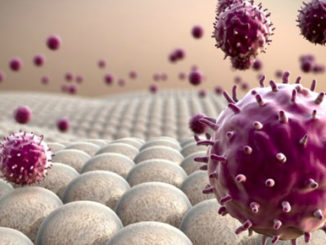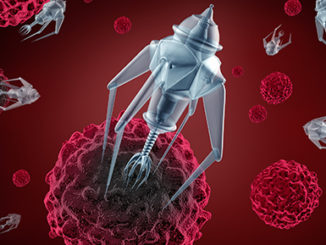Articles that explore the connection between epigenetics and diseases and disorders, including cancer, cardiovascular disease, diabetes, autoimmune disease, and more.
Recent research suggests that our diet and lifestyle can change the expression of our genes. This occurs by adjusting epigenetic marks on top of our DNA without actually making any changes to the underlying genetic sequence. For example, blueberries were found to epigenetically reduce DNA damage and drinking green tea may turn some genes on or off in women. In a new epigenetic study published in Nature Communications, researchers from Icahn School of Medicine at Mount Sinai have identified two [more…]
Ovarian cancer is not the most common of cancers, but it is the leading cause of gynecological cancer related death for women in the U.S. It is often hard to detect; many women don’t display symptoms until it’s in an advanced stage, and then it may be too late for treatment as it can easily spread to the uterus, cervix, or fallopian tubes. Treatments typically include chemotherapy, radiation, hormone therapy, or clinical trials for up-and-coming medicines; however, the new field [more…]
Bipolar disorder affects nearly 6 million Americans and is characterized by drastic shifts in mood, activity levels, and energy, which influences an individual’s ability to carry out daily tasks. It’s a dangerously misunderstood disease and can be easily misdiagnosed. The extreme adjustments in mood – known as mania and depression – are more severe than the typical ups and downs that many people experience. Researchers are finding that something called premature epigenetic aging might play a role in this disease [more…]
Many people consider suicide to be taboo, and it’s a subject that is often avoided. However, the more we understand the reasoning behind why some people are pressed to commit suicide, the better equipped we may be to offer support and guidance for treatment. Interestingly, certain lifestyles and various environmental factors might be able to influence a specific gene linked to stress, which could increase suicide risk in adults and even adolescents. In a new study, researchers from Uppsala University, [more…]
Fight-or-flight is a physiological response that occurs when an individual has been exposed to a perceived threat. This well-known stress response pathway is critical for the survival of many organisms. However, people with different types of anxiety-driven disorders can experience intense stress even with little to no stimuli. For individuals who suffer from anxiety disorders, the feeling of worry and anxiety do not go away. The recurring waves of fear that set off a fight-or-flight response may interfere with daily [more…]
Sleep is something that nearly all species need to survive. On a daily basis, humans need about 8 hours, dogs and cats recharge with around 12 hours, and the koala takes nearly the entire day — napping a whopping 22 hours. But unlike dogs, koalas, or most other animals, we humans don’t always get enough of our required Zzz’s. Our lives are either too busy or filled with too many distractions that keep us up at night. Sometimes sleep is [more…]
Intellectual disabilities affect an individual’s ability to communicate, process information and can severely impact basic life skills of people from all age groups. Many are a result of a genetic mutation and have often had little insight on any cures or treatments. Recent research published in Cell suggests that epigenetics may play a role in alleviating behavioral symptoms and improving neuronal connections. Fragile X Syndrome is the leading cause for intellectual disability on the genetic level and, until recently, seemed [more…]
As the weather gets cooler and winter begins to set in, we’re reminded that the immune system is our first line of defense against foreign pathogens and helps prevent us from getting sick. The immune system is comprised of different types of cells that are able to recognize and destroy disease-causing microbes, such as bacteria, viruses and parasites. This advanced system has aided humans in fighting off intruders for thousands of years – and good thing, because no one likes [more…]
Epigenetic drugs designed to fight cancer might actually be used against many viruses as well. A recent study published in the American Society for Microbiology shows that some pharmaceuticals that act epigenetically have the power to be used as broad spectrum antivirals. Specifically, the researchers looked at histone methyltransferases EZH2/1 inhibitors which can help fight against cancer. Numerous DNA viruses, such as herpes simplex virus (HSV), are involved in epigenetic regulation which determines productive infection, persistence, and latency. Modulation to [more…]
You can now add “harmful changes to your DNA” to the long list of reasons to quit smoking cigarettes, along with lung cancer, coronary heart disease, increased risk of death, stroke, chronic lung disease, decreased immune function, infertility, and the fact that smoking harms nearly every organ in the body. Researchers at the Johns Hopkins Kimmel Cancer Center recently contributed to the growing evidence that demonstrates that smoking cigarettes – which contain a deadly cocktail of over 7,000 chemicals – [more…]











